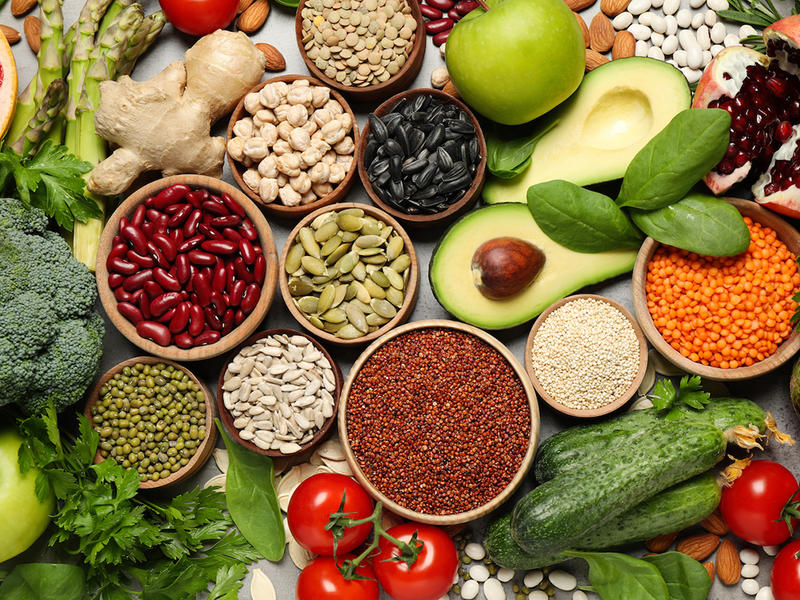ENVIRONMENTAL IMPACT OF 57,000 PROCESSED FOODS REVEALED

ENVIRONMENTAL IMPACT OF 57,000 PROCESSED FOODS REVEALED
Many meat alternatives, can have 90% less environmental impact than meat-based equivalents
Published: 9 August 2022
Share this article
Plant-based sausages or burgers, and many meat alternatives, can have 90% less environmental impact than meat-based equivalents, according to an Oxford-led study estimating the environmental impact of 57,000 food products in the UK and Ireland.
Published in in the journal PNAS, the paper compares the environmental impacts of meat and meat alternative products and finds meat alternatives have a fifth to less than a tenth of than meat equivalents.
The worst scoring products were lamb and beef.
This is the first time a transparent and reproducible method has been developed to assess the environmental impacts of multi-ingredient products. It provides a first step towards enabling consumers, retailers, and policymakers to make informed decisions on the environmental impacts of food and drink products.
Lead author, Dr Michael Clark says, ‘By estimating the environmental impact of food and drink products in a standardised way, we have taken a significant first step towards providing information that could enable informed decision-making. We still need to find how best effectively to communicate this information, in order to shift behaviour towards more sustainable outcomes, but assessing the impact of products is an important step forward.’
A study by the Food Standards Agency* shows more than half of UK consumers want to make more sustainable decisions on the environmental impacts of foods and, at the same time, food corporations are setting ambitious net zero greenhouse gas targets. But there is a lack of detailed environmental impact information on food and drink products – which would allow consumers and corporations to make more sustainable choices.
The study, led by researchers in the Livestock, Environment and People (LEAP) programme and Oxford Population Health at the University of Oxford used publicly available information to derive estimates of the environmental impact of 57,000 food products, which make up the majority of foods and drinks for sale in UK supermarkets.
They looked at greenhouse gas emissions, land use, water stress, and eutrophication potential — when bodies of water become enriched with nutrients, often causing harmful algal blooms and ultimately killing other life. For the purposes of analysis, visualisation and communication, the team combined these four scores into a single estimated composite environmental impact score per 100g of product.
Professor Peter Scarborough, Oxford Professor of Population Health, says, ‘This work is very exciting. For the first time, we have a transparent and comparable method for assessing the environmental footprint of multi-ingredient processed foods. These types of foods make up most of the supermarket shopping we do, but until now there was no way of directly comparing their impact on the environment.
When comparing the environmental impact score to their nutritional value, as defined by the Nutri-score method, products that were more sustainable tended to be more nutritious, including meat and meat alternatives. There are exceptions to this trend, such as sugary beverages, which have a low environmental impact but also score poorly for nutritional quality.
The analysis makes use of foodDB – a Big Data research platform at the University of Oxford that collects and processes data daily on all food and drink products available in 12 online supermarkets in the UK and Ireland, and a comprehensive review of 570 studies of the environmental impact of food production, which includes data from 38,000 farms in 119 countries.
A limitation of the analysis is that information on ingredient sourcing, such as country of origin or agricultural production method is lacking from ingredient lists and this would help increase accuracy of the environmental impact estimates. Additionally, as portion sizes vary for different products, there remain uncertainties in the total environmental impacts of products.
The full paper The environmental impact of 57,000 food products is published in PNAS this week.
It was led by researchers in the Livestock, Environment and People (LEAP) project and the Oxford Population Health at the University of Oxford, with collaborators from the University’s Smith School of Enterprise and the Environment, Oxford Martin School and the Nuffield Department of Primary Care Health Sciences, as well as from the University of Minnesota, Johns Hopkins University and the Rowett Institute, University of Aberdeen.















